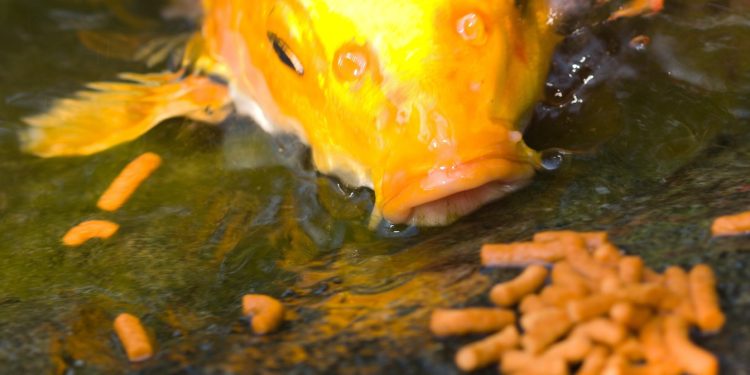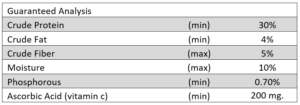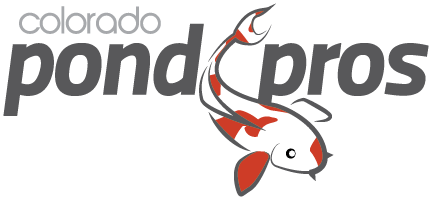
Did you know that one of the leading causes of fish disease and illness is actually humans overfeeding their fish? Yes! Feeding pond fish quality food at the right frequency and the right amount is important!
How often to feed your fish?
We sometimes forget that fish do not need to have 3 meals a day like people. In an ecosystem pond, fish will eat algae, nibble on plants and even grab a bug now and then. Feeding them once a week is fine! If your pond has no plants and not even a hint of algae, you may want to feed them every few days. If you are feeding them daily and have duckweed cropping up…..stop feeding them for a couple days and they will eat the duckweed.
How much to feed your fish?
Regardless of how often you feed them, make sure not to feed them more than they can eat in about 5 minutes. Food left floating or sinking to the bottom leads to algae blooms. Sometimes fish can be quite the pigs! Remember that koi may keep eating even if they shouldn’t. About a size of a quarter is enough for a couple fish. If your fish seem overly round, they may be getting too much food. Overeating, just like with people, can lead to health problems.
Size matters
The bigger the fish, the more they can safely eat. Fish food even comes in smaller pellets for smaller fish. If your fish are over a foot long they may need a little more food. (A little means 50% more, not a cup more!) If they are 2 feet long then they will need a little more than that!
Treats for your fish
Did you know you can offer your fish vegetables and fruits now and then? Yes, they can eat blueberries, peas, watermelon and other soft fruits. Of course, take care that they are free of pesticides and rinsed off well before offering them to your fish. At first they may not be used to eating them and may leave them floating for a while. Make sure to remove any excess fruit (or fish food).
We have heard that some people offer their fish Cheerio’s…. Please don’t feed your fish Cheerio’s! They have no protein and loads of salt! Not good for your fish!
Good quality fish food
Feeding fish high-grade quality food is important not only to their health, but for maintaining good water quality. Fish do not have stomachs. Food digests as it travels through their gut. Food higher in protein content will enhance the natural color of the fish. Aquascape’s Premium Staple Fish Food Pellets is a favorite of ours.
A typical nutrient label on fish food will look something like this:

Between 28 and 40% protein is plenty for goldfish and koi. More than that is not necessary. Adult koi can’t process quite that much anyway and will poop it out! Also, the higher the protein content, the less you need to feed your fish.
Fish food should be stored in a cool, dry place. It can mold if left in heat and humidity. Don’t feed moldy food to your fish! IF you buy your food in bulk put a small amount in a bag you use regularly and freeze the rest to keep it fresh.
When to stop feeding them
When pond water temperatures reach 50°, fish metabolisms slow down. When this happens, they are unable to digest food well. In the fall when outside air temperatures fluctuate here in Colorado from 76° in the day to 25° at night, it’s hard to know when that is. Purchasing a floating water thermometer that gives you temperature in the house is very helpful. Another way to be sure you know when to stop feeding your fish is to sign up for Colorado Pond Pros Pond Tips. We send out reminders when pond temperatures get down to 50° and when they go above it in the spring.
Protein also takes longer to digest, which is why there is particular food to feed fish once the water temperatures reach 55°. Cold water food has less protein and therefore digests more quickly. Once the water temperatures get as low as 50° their metabolisms slow down much more. Food may not digest if fed when the temperature is so low and can cause internal infections. During the cold months, fish immune systems also slow down, making it much harder for them to fight off infection.
Begging fish
Don’t be fooled by fish that beg for food during the transition times in the fall. They are accustomed to eating and when they see you walk up they think its dinner time! While its tempting to go ahead and feed them, remember that if they can’t digest it – they may seem fine now but you may lose them in the winter as the food sits and rots in their bellies!
Want to read more about fish care basics? Click HERE.
